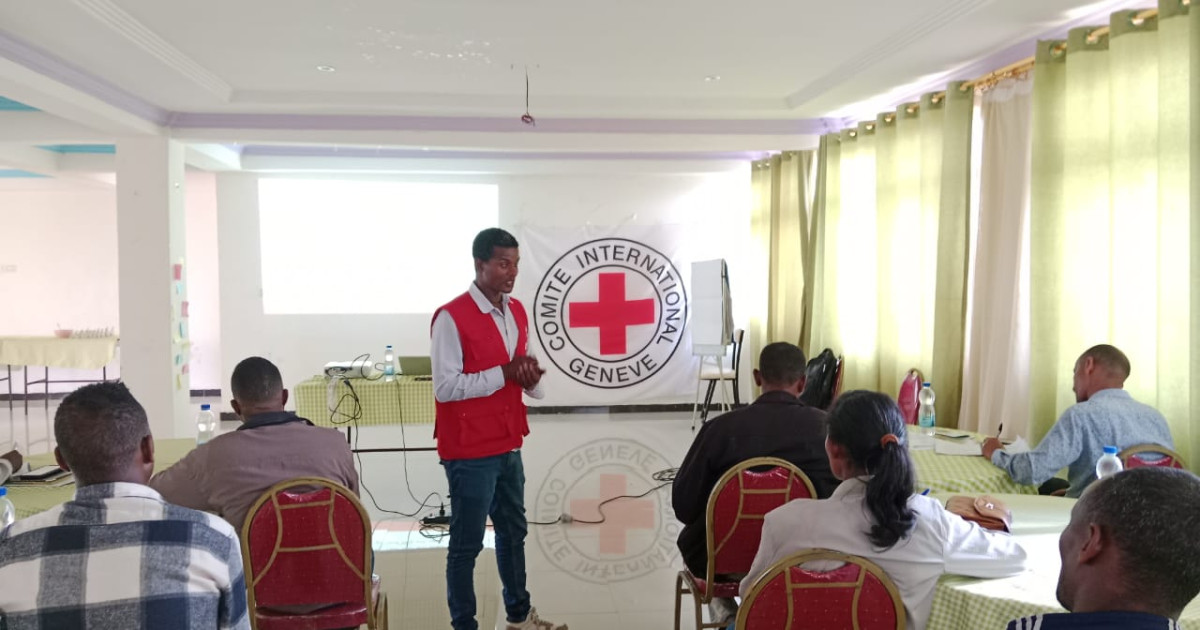It is commonly believed that people with physical disabilities cannot work effectively in the workplace. Social isolation and discrimination limit their employment opportunities, resulting in organizations missing out on talented people. People with disabilities are often denied employment opportunities despite having university qualifications in a particular field of study and the ability to carry out the required work.
“Many of us are qualified and strive to work, but we are not given the opportunities. The situation in this country can be improved,” says Tilahun Bedada, the ICRC’s social inclusion officer in Addis Ababa. Tilahun is visually impaired, but has been successful in his work and has won hearts by raising awareness about disability through social inclusion projects.
Employment rates for people with disabilities are much lower than for people without disabilities due to a lack of understanding about the valuable contribution that inclusion of people with disabilities in the workplace. The ICRC’s Social Inclusion Programme tackles this issue by raising awareness and facilitating internship opportunities for university graduates with disabilities in private companies, the civil service and non-governmental organisations across the country.
“Because of my disability, I have had no work for two years,” said Debalke Abi, 28, who graduated from university with a degree in Amharic literature in 2021. Like many men his age, he dreamed of a bright career and endless opportunities, but faced many challenges in finding work because of his disability.
At the age of 13, Debalke was diagnosed with polio, which left him with a crippled right leg – a condition his community saw as “punishment from God”. He eventually received care and crutches to make his mobility easier at the ICRC-supported Dessie physical rehabilitation centre in Amhara region.
“I applied for a job as a school teacher, and when I came for the interview, the interviewers looked at me in shock when they found out I was disabled,” he recalls. “They then told me that the job would be too difficult for me with my disability. I was really depressed and never applied for a job again.”
The ICRC supported Debalke’s job search and accompanied him to secure a three-month internship at the Kombolca tax office, after which he was hired permanently as a data recording officer in August. The ICRC covered Debalke’s travel and other expenses during the internship.
“As an intern, he brought very innovative ideas and attention to detail. He didn’t let his disability stop him from wanting to get ahead in life. He is a pleasure to work with,” explains his manager, Fikirte Geto.
Devalke says the internship was a valuable opportunity to gain hands-on experience, immerse himself in the work culture, build self-confidence, demonstrate his value to employers and make an invaluable contribution to the projects he worked on.
“For a disabled person like me, employment means more than just a salary. It’s a confidence boost and an inspiration not only for me but for the community as well,” he says.
To complete the rehabilitation process and achieve meaningful outcomes from clinical services, the ICRC’s social inclusion project (embedded in the broader physical rehabilitation programme) works with physical rehabilitation centres to prepare people with disabilities for formal employment. A total of 225 people with disabilities have benefited from this project.

